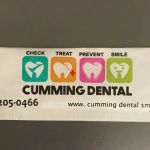Types of Mouth Ulcers and Their Causes
Mouth ulcers come in various forms, such as canker sores, oral lichen planus, leukoplakia, erythroplakia, oral thrush, and even oral cancer. Canker sores are the most common and can be caused by minor trauma, acidic foods, or stress. Other causes of mouth ulcers include hormonal changes, lack of sleep, vitamin deficiencies, autoimmune diseases, and infections. Some underlying health conditions like Crohn's disease and lupus can also contribute to the development of mouth ulcers.
Symptoms and Diagnosis
Mouth ulcers typically appear as sores on the gums, tongue, inner cheeks, or lips. They may be red around the edges and white, yellow, or gray in the center. Symptoms can include swelling, increased soreness when brushing teeth, and pain when eating spicy, salty, or sour foods. A healthcare provider can diagnose mouth ulcers through a visual examination and may order blood tests if needed.
Treatment Options
Most mouth ulcers heal on their own, but medications can be prescribed to ease discomfort. Common treatments include antiseptic gels, steroid ointments, and immunosuppressants in severe cases. At home, you can relieve symptoms by drinking plenty of water, maintaining good oral hygiene, rinsing with warm saltwater, using hydrogen peroxide and water mixtures, avoiding certain foods, and applying over-the-counter topical anesthetics.
Prevention Tips
To prevent mouth ulcers, brush and floss your teeth regularly, use a soft-bristled toothbrush, eat a balanced diet, visit the dentist for checkups, and manage underlying conditions if applicable.
When to Seek Professional Help
If you have mouth sores that last for three weeks or longer, new sores that appear before the old ones heal, ulcers that affect the outer part of your lips, pain that doesn't improve with medication, unusually large ulcers, painless sores, fever, or diarrhea, it's time to see a healthcare provider. You should also ask your provider about the cause of recurring ulcers, ways to reduce the risk, and recommended treatments.
Common Questions and Differences
There's a difference between mouth ulcers and canker sores. Canker sores are a type of mouth ulcer but often have no known cause. Cold sores are different and appear outside the mouth. Any mouth ulcer that lasts longer than three weeks could indicate a more serious underlying condition or even cancer.
Natural Home Remedies
Some natural remedies to cure mouth ulcers fast include dissolving salt in warm water for rinsing, making a baking soda paste, applying honey, coconut oil, aloe vera gel, a turmeric paste, steeping chamomile tea bags, mixing hydrogen peroxide and water, soaking licorice root powder, and taking vitamin B complex supplements. However, it's advisable to consult a dental professional for proper evaluation and treatment.
Mouth sores and ulcers can be a nuisance, but there are many ways to manage and treat them. Home remedies can provide relief and promote healing, but it's important to be aware of when to seek professional help. By taking good care of your oral health and being cautious of persistent or unusual symptoms, you can keep your mouth healthy and free from discomfort.



 Kremers, Forbes and Associates DDS5.0 (689 review)
Kremers, Forbes and Associates DDS5.0 (689 review) VCC: The Gary Center2.0 (45 review)
VCC: The Gary Center2.0 (45 review) Hassan Ismail5.0 (1 review)
Hassan Ismail5.0 (1 review) Open Door Family Medical Center- Sleepy Hollow4.0 (215 review)
Open Door Family Medical Center- Sleepy Hollow4.0 (215 review) Cumming Dental Smiles: Bethelview Road4.0 (529 review)
Cumming Dental Smiles: Bethelview Road4.0 (529 review) CJ Dental4.0 (13 review)
CJ Dental4.0 (13 review) The Importance of Oral Health Education During Pregnancy for a Healthy Pregnancy
The Importance of Oral Health Education During Pregnancy for a Healthy Pregnancy Best Tips for Brushing Your Teeth Properly for Healthy Gums: Essential Techniques for Oral Health
Best Tips for Brushing Your Teeth Properly for Healthy Gums: Essential Techniques for Oral Health Why Skipping Dental Checkups Can Lead to Bigger Oral Health Problems
Why Skipping Dental Checkups Can Lead to Bigger Oral Health Problems Advantages of Porcelain Dental Restorations
Advantages of Porcelain Dental Restorations How Can Diabetes Cause Tooth and Gum Problems? Preventing and Managing Oral Health Issues
How Can Diabetes Cause Tooth and Gum Problems? Preventing and Managing Oral Health Issues Healthy Habits for Promoting Good Oral Health and Hygiene: Tips for a Healthy Smile
Healthy Habits for Promoting Good Oral Health and Hygiene: Tips for a Healthy Smile